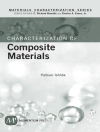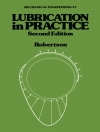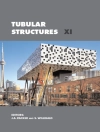Understanding the interaction between various processes is a pre-requisite for solving problems in natural and engineering sciences. Many phenomena can not be described by concentrating on them in isolation – therefore multifield models and concepts that include various kinds of field problems and processes are needed. This book summarizes the main scientific results of the Collaborative Research Center on Multifield Problems in Continuum Mechanics (Sonderforschungsbereich Mehrfeldprobleme in der Kontinuumsmechanik, SFB 404) funded by the German Research Foundation (DFG) from 1995-2006. The book is divided into three main sections: A: Volume-Coupled Problems, devoted to fields which are coupled inside the processing domain or volume, B: Boundary-Coupled Problems, here physical fields and processes are coupled via domain boundaries, C: Fundamental Methods, search into the mathematical concepts and backgrounds of multifield and multiscale modeling.
表中的内容
Volume-Coupled Problems.- Mathematical Models for the Sedimentation of Suspensions.- Multiphase Processes in Porous Media.- Localization Analysis of Porous Granular Materials.- Computer Simulation of Particle Suspensions.- Multiscale Modeling of Anisotropies in Single Crystals and Polycrystals at Finite Strains.- Boundary-Coupled Problems.- Fluid-Structure Interaction of Incompressible Flows and Thin-Walled Structures.- Large-Scale Simulations of Acoustic-Structure Interaction Using the Fast Multipole BEM.- Dynamics of Poured Polyhedra of Different Shape.- Multilevel Numerical Algorithms and Experiments for Contact Dynamics.- Fundamental Methods.- Regularity of Elastic Fields in Composites.- Multilevel FEM for Heterogeneous Structures: From Homogenization to Multigrid Solvers.- A Mathematical Framework for Generalized Standard Materials in the Rate-Independent Case.- Heterogeneous Domain Decomposition for Numerical Aeroacoustics.- Boundary Element Tearing and Interconnecting Domain Decomposition Methods.- Analytical and Numerical Methods for Finite-Strain Elastoplasticity.- Nonconforming Discretization Techniques for Coupled Problems.












